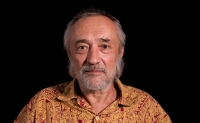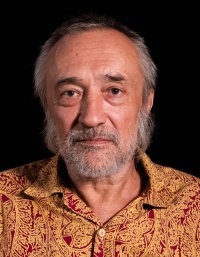I’ll never forget November 1989. For several months I felt happy

Download image
Josef Kadeřábek was born May 26, 1955 in Ústí nad Labem and grew up in nearby Telnice. As a physiotherapist and a masseur of the Rudá Hvězda Ústí nad Labem boxing team, he’s had his share in many national titles. During his military service, which he served at a military medical post in Prague, he went to military prison for six weeks for visiting Western embassies. He was threatened with further punishment and the State Security tried to blackmail him into cooperating with them. In 1980 he became head of tech support of the Činoherní studio theatre in the times of its golden era. He spent November 1989 in the theatre as well. After being at Národní with the students on November 17, he brought the news back to Ústí. The Činoherní studio went on a strike, he was a member of the Ústí branch of the Civic Forum’s coordination team and drove around neighboring factories to explain people what was going on. In the first free municipal elections he was elected to the municipal council and became a councilman. He withdrew from politics in 1993 and returned to the Činoherní studio.

